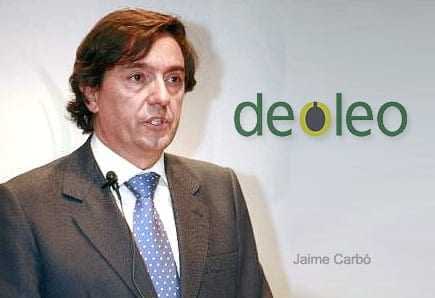
Spanish food giant Deoleo — owner of olive oil brands Carbonell, Bertolli, Carapelli, Koipe and Sasso — is back in the black and planning to double its size via growth in emerging markets.
After what it described as “a period of instability, profound change and restructuring,” the Madrid-based world leader in olive oil trade booked a net profit of €1.1m for 2011 after a €56.5m loss the year before.
Deoleo, formerly known as SOS Corporacion Alimentaria, is now aiming for expansion in China, India and South America, reports Spain’s Expansión newspaper. And in established markets it plans new products aimed at specific culinary uses — such as frying oils that deliver lower food fat absorption — and in new packaging, such as spray formats.
Financial recovery
In a report last week to Spain’s National Securities Market Commission (CNMV for its initials in Spanish), Deoleo said that among efficiency measures that returned it to profit were the reduction of its workforce from 2230 to 1021. More jobs will be shed until a target of 923 is reached.
Though the group’s overall sales fell 4.4 percent to €1.11b ($1.46b) last year on the back of falling olive oil prices, Deoleo highlighted its success in gaining ground in emerging markets, with 56 percent growth in China, 28 percent in Brazil, 19 percent in Thailand and 11 percent in South Korea.
However, according to Expansión, 30 percent of Deoleo’s profit last year was produced in Spain, another 30 percent in Italy, and 20 percent in the US, Canada and Mexico.
Deoleo said a 11 percent fall in its Ebitda (earnings before interest, taxes, depreciation and amortization) to €85m was mainly due to losses in the first half of the year in its sunflower oil business and increased promotion of olive oil in key markets.
Olive oil market gains volume, loses value in Spain, Italy, while club stores lead retail growth in US
In its report to the CNMV, Deoleo said Spain’s olive oil market had grown by 1.98 percent in volume last year but lost 0.9 percent in value, while the virgin/extra virgin segment grew by 9.2 percent in volume and and 5.7 percent in value, according to Nielsen..
In Italy both volume grew and value fell by 0.8 percent.
The US market had remained relatively stable but its rate of growth had slowed, Deoleo reported. “It should be kept in mind that in this country the club store, which is the fastest-growing retail segment, was not measured by Nielsen,” the group said.
The store brand olive oil market lost market share in countries that have traditionally been higher consumers — such as Spain and Italy — but gained ground in the US and Germany.
Meanwhile the market for sunflower oil in Spain has shrunk 2.2% — attributed to regular users switching to olive oil because of the latter’s price drop.
Bumper harvest to keep prices down
Deoleo noted that olive oil prices remained depressed. The price for lampante oil, for instance, was down 11.4 percent on a year ago.
“The prices will maintain this downward tendency in all markets amid the huge 2011/12 harvest,which at time of publication was nearly complete and could exceed 1.5m tons in Spain.” it reported.
New products
Deoleo director general Jaime Carbó told journalists last week that it was time to modernize the oil sector just as had happened with wine in the New World. “People don’t understand denominations of origin, but they do know the grape variety they like,” he said.
In a similar way, consumers would be more likely to understand and buy an oil that was ideal for frying fish, another for grilling, and another perfect for cooking meat, Carbó said.
Regarding Deoleo’s work on products for lower fat uptake in fried food, he said he’d be “able to offer an oil that could be marketed as both being ideal for tempura and providing a 20% saving in the oil volume used.”


